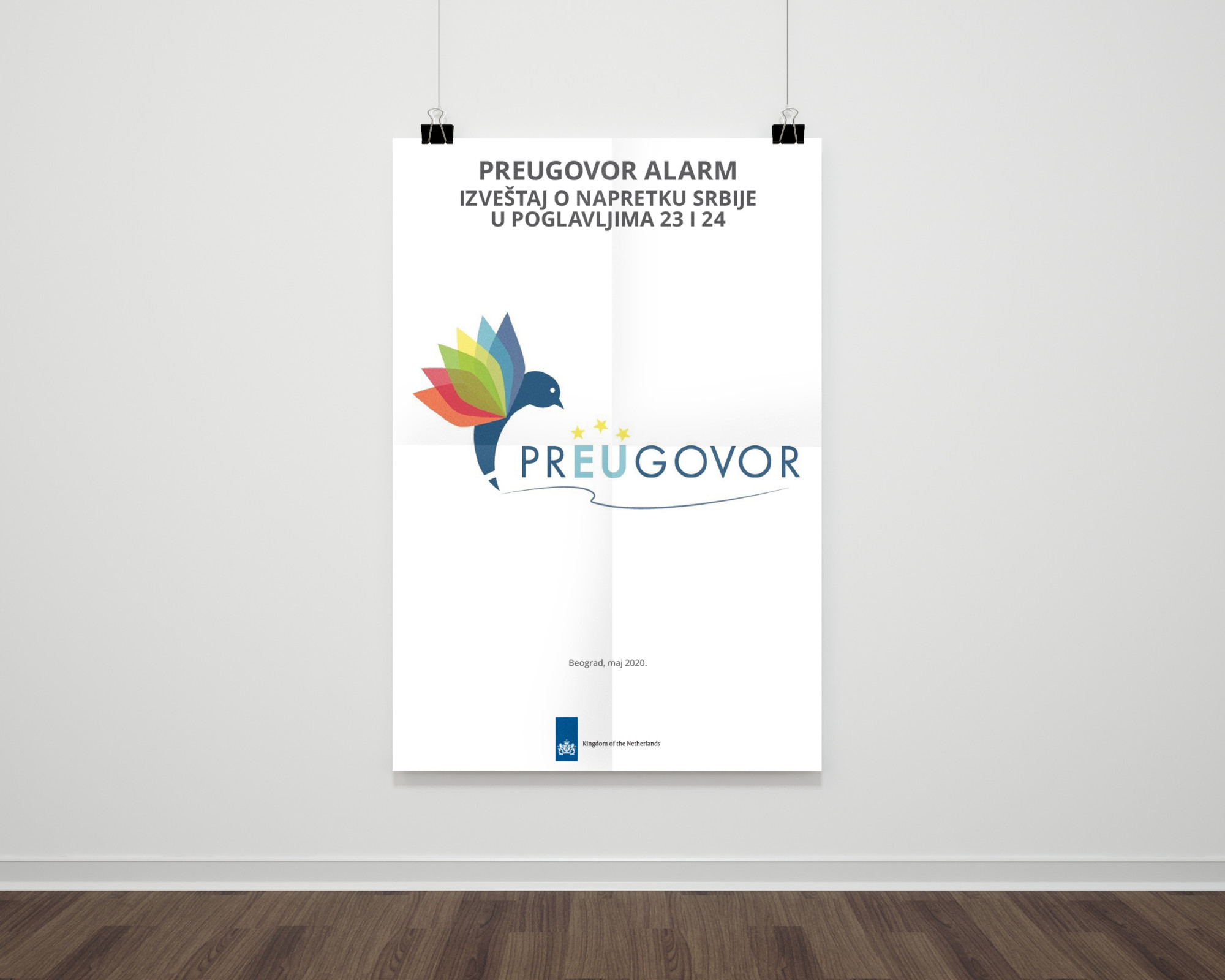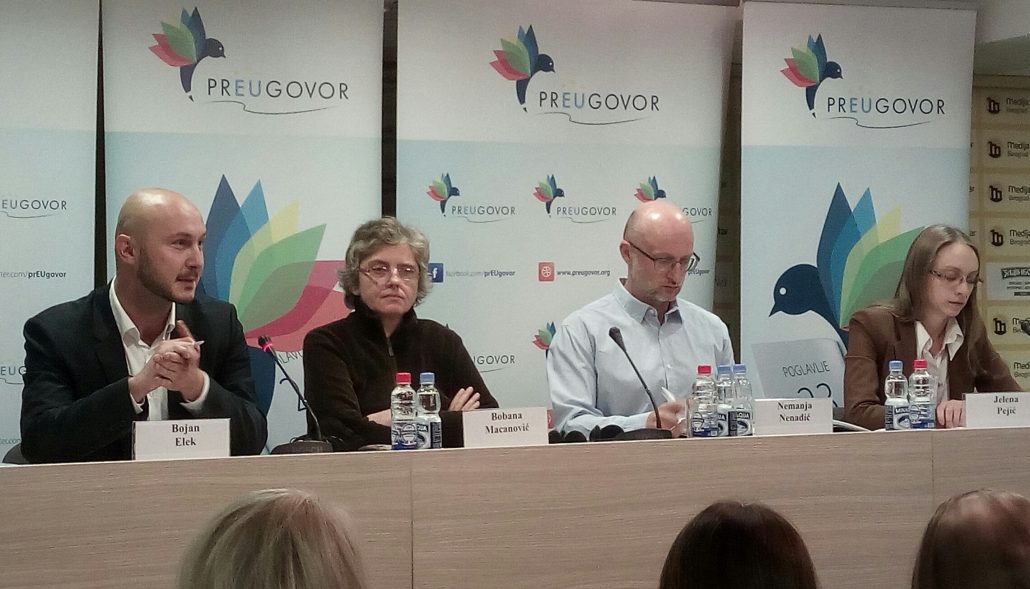Coalition prEUgovor published a new edition of their Alarm Report on Progress of Serbia in Chapters 23 and 24. This report contains the prEUgovor coalition’s assessment of the political criteria for the EU accession process and the fulfilment of criteria for selected policy areas from Chapters 23 and 24 for the period October 2018 – March 2019. The presentation was held on 16 April at the Media Centre in Belgrade.

The report states that the government continued the practice of abuse of public resources during the election periods, while the executive and the ruling majority continuously deprived the Parliament of its legitimate functions. Another worrying fact is the increasing number of laws that are being passed by urgent procedure and in most cases without any public debate. These practices have led to an alarming consequence – namely, the opposition has left the Parliament.
Besides the above, the authorities keep undermining the work of independent control institutions by systematically ignoring their recommendations. Once again, we have an atmosphere in which non-governmental organisations are declared enemies and traitors; they are left out of all the dialogues and are not welcome in the solving of social problems. At the same time, the government is creating its own NGOs (GONGOs).
The fight against corruption is at a very low level, threatening to become a mere simulation that is activated only periodically so that the authorities can easily score some cheap political points. Furthermore, there is a real danger that the very same mechanism (Law on Investigation of Property Origin) could be used against the opposition. Also, there are enormous problems with the potential consequences of the proposed constitutional amendments related to the judiciary, as well as a series of laws that are about to enter parliamentary procedure.
Generally speaking, the commitments made in the existing Action Plans for Chapters 23 and 24 are fulfilled inconsistently, while the deadlines are postponed on a regular basis. Well-known problems with the non-implementation of the existing acts and laws are still present. Having in mind the fact that two crucial EU issues to be addressed are the Rule of Law and the fight against corruption, lack of concrete results in these two areas is still a major alarming obstacle in Serbia’s process of integration.
The majority of the key findings expressed in this report coincide with the lowered ratings that were given to Serbia by various international actors (Freedom House, for instance), thus confirming the alarming developments in the areas covered by Chapters 23 and 24.
 To download full report follow this link>>>
To download full report follow this link>>>
Coalition prEUgovor is a network of civil society organisations formed in order to monitor the implementation of policies relating to the accession negotiations between Serbia and the EU, with an emphasis on Chapters 23 and 24 of the Acquis. In doing so, the coalition aims to use the EU integration process to help accomplish substantial progress in the further democratisation of the Serbian society.
Members of the prEUgovor are: ASTRA – Anti Trafficking Action, Autonomous Women’s Center (AWC), Belgrade Centre for Security Policy (BCSP), Center for Investigative Journalism of Serbia (CINS), Center for Applied European Studies (CPES), Group 484 and Transparency Serbia (TS).
 The Coalition prEUgovor, consisting of seven civil society organizations from Serbia with expertise in various policies under chapters 23 and 24 of the European Union accession negotiations, held a conference on 22 May 2023 to celebrate 10 years of their work. Mission of the prEUgovor is to oversee the implementation of policies in the field of judiciary and fundamental rights (Chapter 23) and Justice, freedom and security (Chapter 24) and propose measures to improve the reforms, using the process of EU integration to achieve substantial progress in the further democratization of Serbia.
The Coalition prEUgovor, consisting of seven civil society organizations from Serbia with expertise in various policies under chapters 23 and 24 of the European Union accession negotiations, held a conference on 22 May 2023 to celebrate 10 years of their work. Mission of the prEUgovor is to oversee the implementation of policies in the field of judiciary and fundamental rights (Chapter 23) and Justice, freedom and security (Chapter 24) and propose measures to improve the reforms, using the process of EU integration to achieve substantial progress in the further democratization of Serbia.



 The Coalition
The Coalition  To read full report,
To read full report, 

 To download full report
To download full report 
